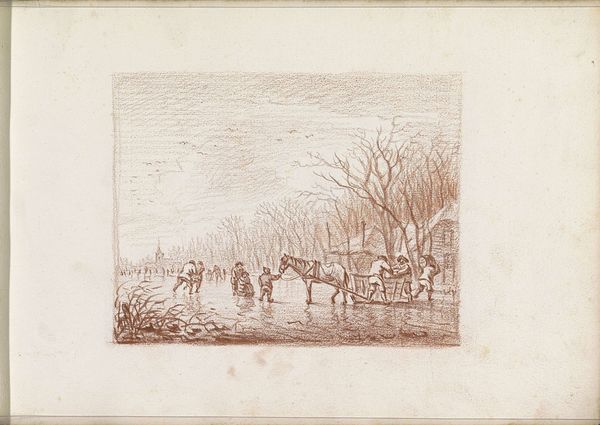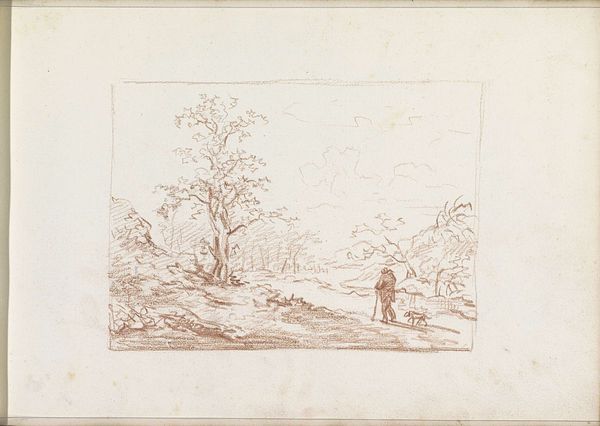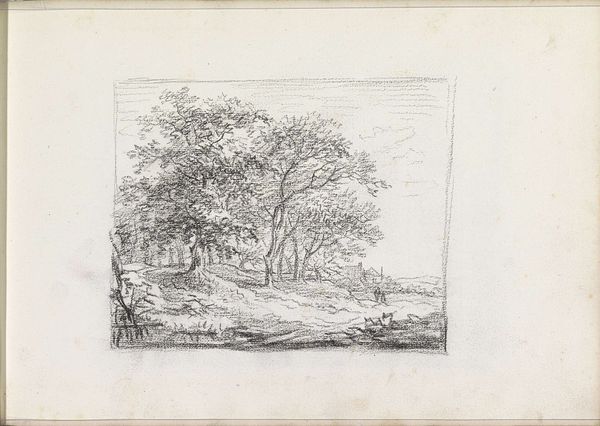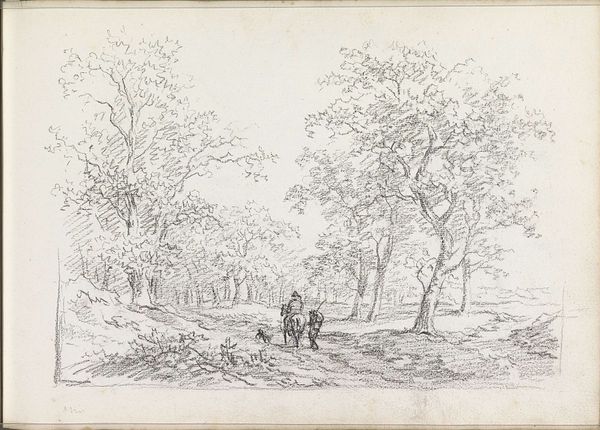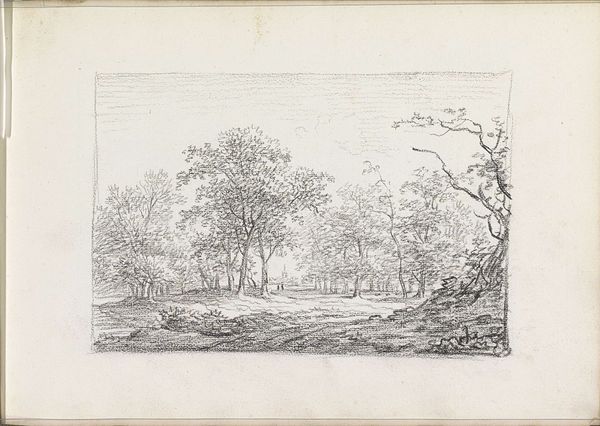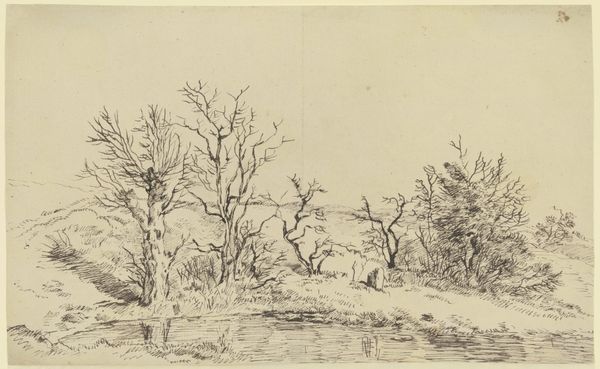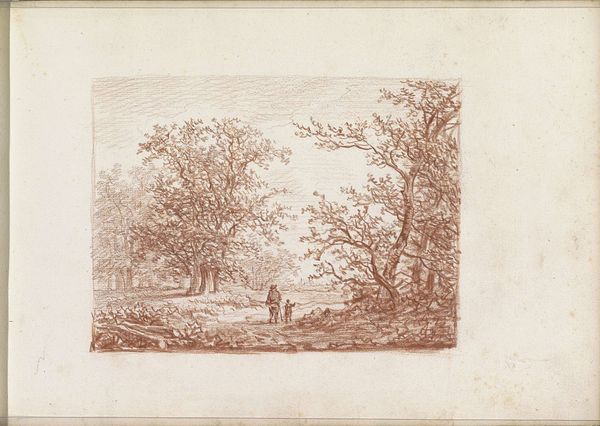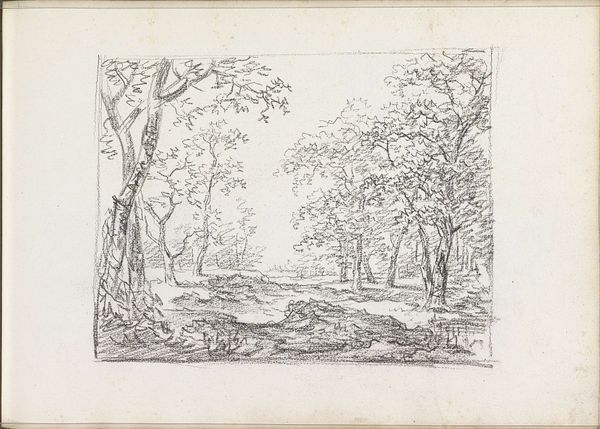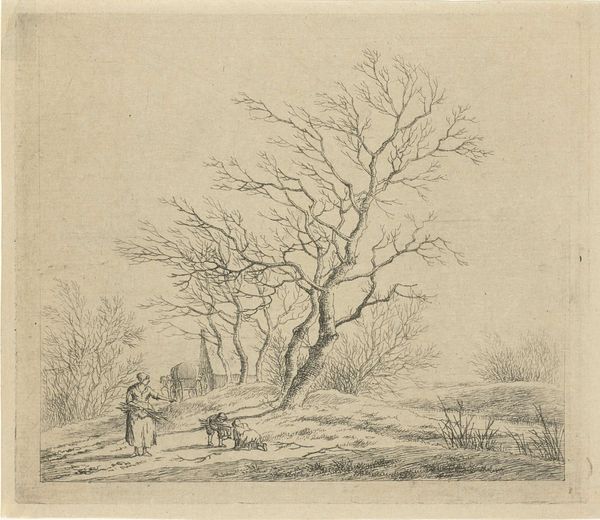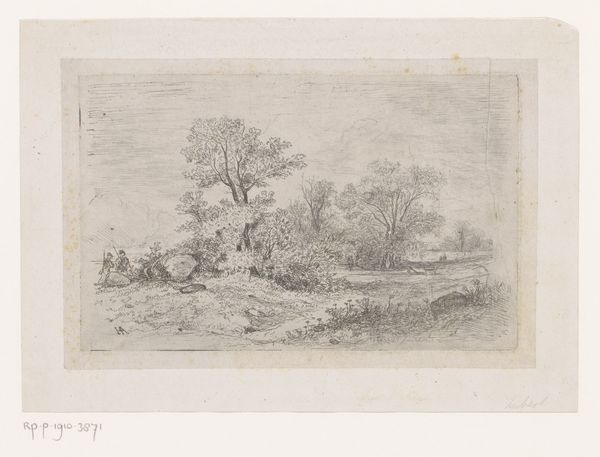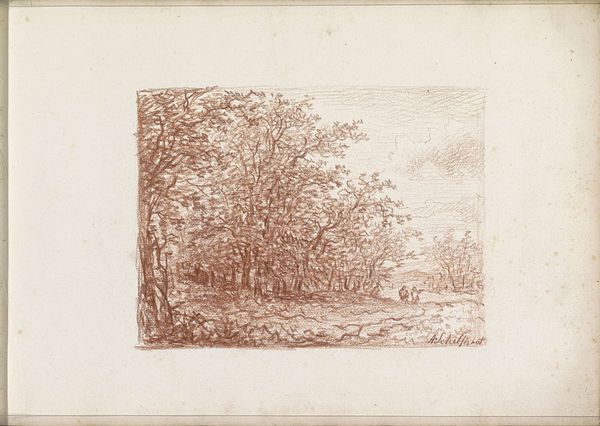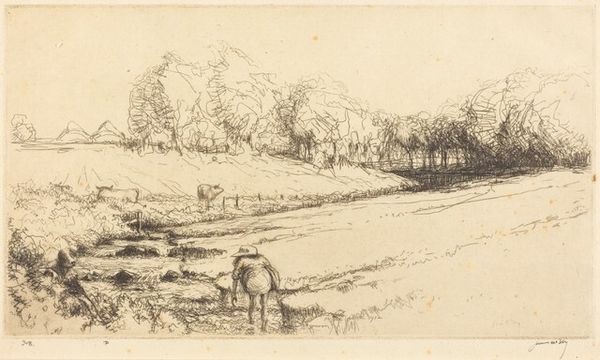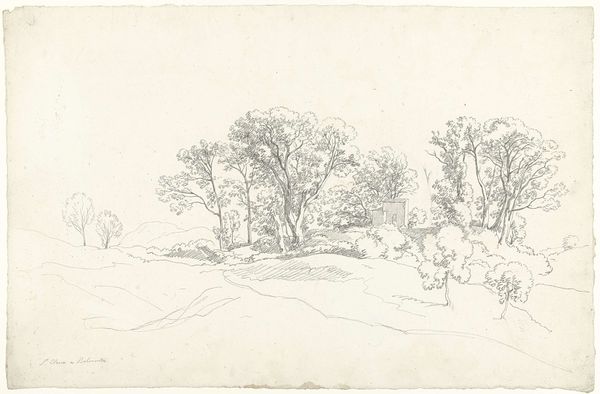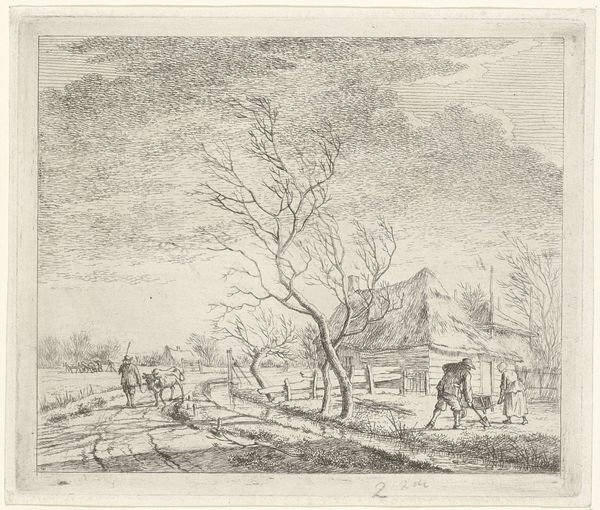
drawing, pencil
#
drawing
#
pencil sketch
#
landscape
#
figuration
#
romanticism
#
pencil
#
realism
Copyright: Rijks Museum: Open Domain
Curator: Andreas Schelfhout created this pencil drawing, "Landscape with Two Men by a Cart," around 1811. It's currently held at the Rijksmuseum. Editor: It evokes a quiet melancholy. The thin pencil lines almost feel brittle, mirroring the bare trees of early winter. It seems such a vulnerable drawing, very exposed. Curator: Vulnerable is interesting. I see it more as revealing. The landscape as a stage for the quiet drama of human effort. The men hauling the cart carry such weight; their toil becomes almost symbolic, connecting them to the elemental struggles of life. It really leans into Romantic ideals. Editor: Precisely that struggle seems so amplified precisely because it’s laid bare with this specific choice of material: pencil on paper. You see every stroke, every mark. The drawing lays out bare the raw labor needed to represent even more labour within the frame. I wonder, was paper and pencil easily acquired during that period? I am very sensitive to its availability when considering what this choice in material represents for the artwork. Curator: Access would indeed influence that decision. And you're right, that material reality shifts the symbolism, from the archetypal peasant narrative to a possibly more specific account. Perhaps Schelfhout wasn't simply echoing Romantic ideals, but showing how they played out in the mundane. I am also aware of pencil techniques, I think here it emphasizes the rawness of human impact on nature, something typical of a new emerging era. Editor: Right. And while some landscapes are celebrations of the sublime, the roughness in the marks mirrors an exhausting workload. Consider this is 1811. The work of men pulling on a cart tells us everything about human versus animal power or industrial capacity. You can almost feel their weight against the ground, against nature. Curator: It speaks to me how this simple sketch contains that quiet observation but elevates it, adding layers of shared toil and meaning, a collective history in fragile lines. Editor: Exactly. It's this act of representing manual labor on such plain, unassuming, available material itself that is quietly profound.
Comments
No comments
Be the first to comment and join the conversation on the ultimate creative platform.
